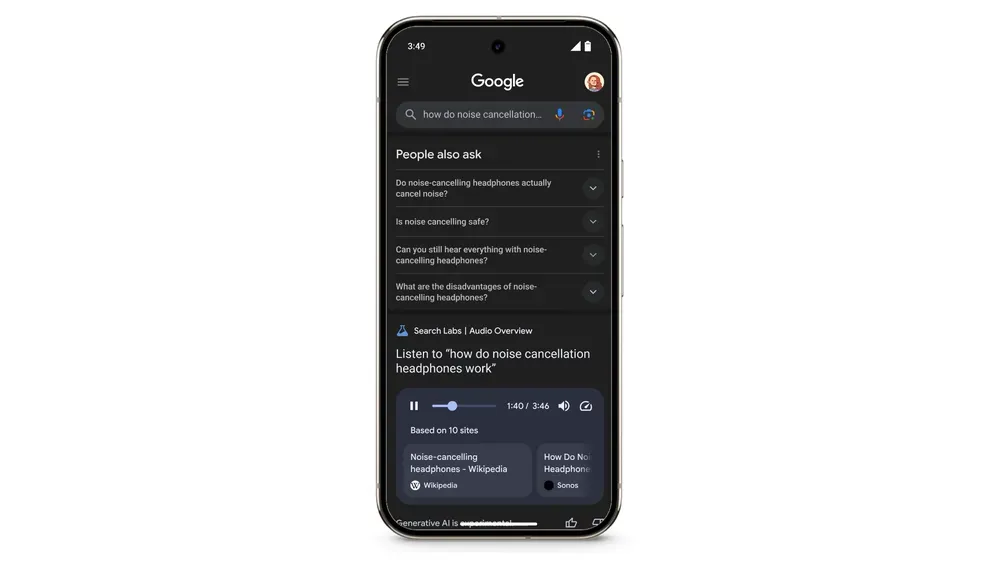This Friday, Google announced it would launch a new experiment in Labs that enables users to generate short audio overviews for some of their search queries using the latest Gemini models. According to the company, the possibility of having audio overviews of queries of unfamiliar topics may be helpful for users looking to get to the basics of said topic while multitasking or for those who prefer to learn about things through an audio format.
Users who opt in to the experiment will start seeing an option to generate an audio overview on the search results page for queries that Google's system determines would benefit from an audio overview. When the audio overview is ready, users will see an audio player with basic controls, including volume, playback speed, and play/pause buttons. The audio player also displays relevant web pages, enabling users to learn more about the topic under discussion in the overview.
Audio Overviews quickly became one of NotebookLM's most popular features. NotebookLM is a product that aims to behave as an "AI-powered research assistant", helping users generate helpful objects, including summaries, study guides, and briefing documents, with features such as inline citations to ensure proper grounding on the user-provided sources. NotebookLM's Audio Overviews let users create podcast-style discussions on any topic from provided sources. A recent redesign enhanced NotebookLM Audio Overviews with an 'interactive' mode, which enables users to ask questions directly to the AI-generated AI Overview hosts.
Previously, Google also ported some Audio Overviews features to Gemini, allowing the chatbot to generate audio summaries from provided reference materials. In the case of Search, it seems the decision to launch the audio overviews stems from the company's goal to transform internet search using AI. As such, audio overviews in Search build on AI Overviews, the feature that delivers text-based AI-generated summaries of search results, and that has been the subject of several controversies, including the accusation that the feature cannibalizes news publishers' traffic.







Comments